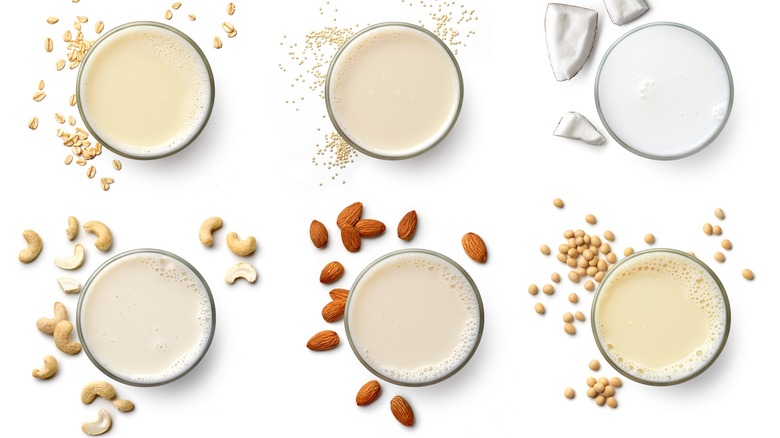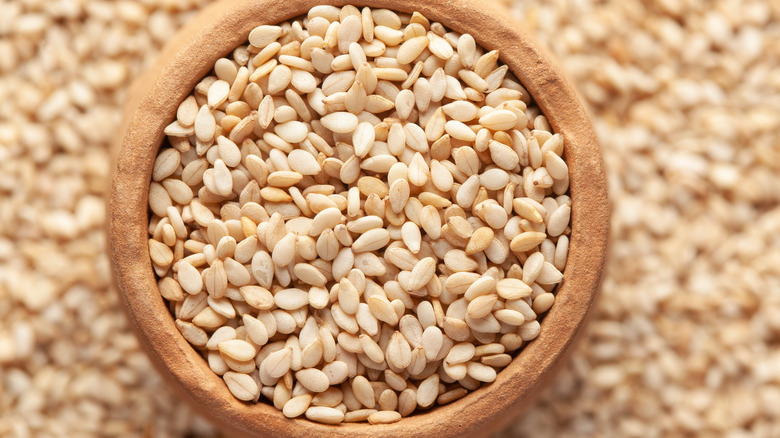The Seeds That Are Sprouting A New Alternative Milk Trend
Walk into the dairy section of your local grocery store and you'll find it's no longer filled with traditional choices. Next to familiar milk options, like whole and skim, is a fleet of alternative milks made from plants, like oat or hemp milk, and a variety of nuts. Alternative milks weren't always so common. Just a few years ago, the average consumer would have been dependent on either soy or rice milk made for lactose-intolerant individuals, per The Guardian.
But the rise of plant-based milks isn't just fueled by people who can't digest milk. The proliferation of these milk options comes from trends in the food industry where consumers are more concerned about ethics and sustainability (via The New York Times). While not all alternative milks are perfect for the environment, such as almond milk, whose water consumption has drawn criticism, many consumers reach for alternative milks to try and live a healthy, sustainable lifestyle. And now, a new contender may be ready to rise to the top.
The secret seed behind a new milk
Alternative milks have come a long way from only offering soy and rice options. Almond milk skyrocketed in popularity in 2011 and is still one of the most popular milks on the market (via Imbibe). More recently, oat milk has taken the alternative milk market by storm. Now, it's possible the next big thing will sprout from seeds.
Seed-based plant milks have been around for a while, with hemp seed milk perhaps being the most well known. Like other plant-based milk alternatives, seed milks are made by soaking seeds in water, then grinding and staining the resulting mixture, before filtering the liquid to extract the "milk" (via Allplants). Many seed milks can have a robust taste, according to the Academy of Culinary Nutrition. But seed milks aren't restricted to just hemp seeds.
At the Summer Fancy Food Show, the brand Hope and Sesame displayed a sesame seed milk, per The Washington Post. A representative for Hope and Sesame told the Post, "sesame is drought resistant, needs less water than other crops, and is naturally pest resistant and pollinator friendly." The company Lattini was also in attendance to show off its sunflower seed milk, which the company's website notes is environmentally friendly to grow. It appears two more alt milks may soon have a spot in dairy coolers around the country.

